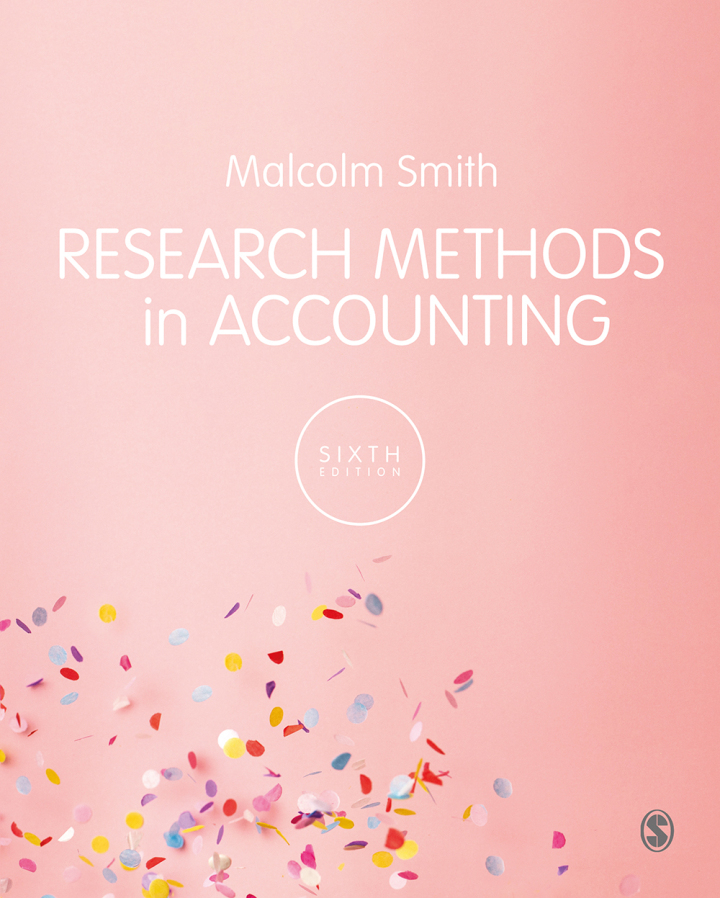
Research Methods in Accounting 6th Edition
PUBLISHER: Sage
Trường ĐH, Nhóm, Thư Viện: Gọi 0915920514 để báo giá eBook hosting trên Vital Source hoặc mua Sách In
Phương pháp nghiên cứu trong kế toánVăn bản độc đáo và phổ biến này, hiện đã có phiên bản thứ sáu, hướng dẫn rõ ràng và ngắn gọn cho sinh viên Kế toán và các nhà nghiên cứu về sự hiểu biết và tiến hành nghiên cứu từ khi hình thành đến khi hoàn thành, thông qua nhiều phương pháp nghiên cứu, bao gồm nghiên cứu định lượng, định tính và các phương pháp hỗn hợp. Phiên bản mới nhất này cung cấp thông tin mới và mở rộng, bao gồm vai trò và tác động của truyền thông xã hội, phân tích dữ liệu lớn, khai thác dữ liệu cũng như các công nghệ mới nổi và đột phá, chẳng hạn như Blockchain. Ngoài ra còn có sự tập trung đổi mới vào vai trò của đạo đức trong nghiên cứu Kế toán. Văn bản này vẫn là tài liệu đọc cần thiết cho những người hoàn thành khóa học về phương pháp nghiên cứu, dự án/luận văn hoặc hình thức nghiên cứu cá nhân khác về Kế toán. Malcolm Smith là Giáo sư Kế toán tại Đại học Nam Úc.
List of FiguresList of TablesAbout the AuthorPrefaceAcknowledgements1 Introduction and OverviewTheory as testable explanationA critical approach to accounting research2 Developing the Research IdeaThe research sequenceEmergence of the research topicThe research proposalConceptual frameworksThe structure of DNA: the development of new theoryThe Bradman problem: the development of new strategiesThe longitude problem: implementing solutionsSearching the family tree: qualitative archival researchThe Holy Grail: experiments in the fieldBenford’s law: casual observation to forensic toolStrategic management accounting3 Theory, Literature and HypothesesSources of theorySearching the literatureModelling the relationshipDeveloping the hypothesesValidity concerns4 Research Ethics in AccountingIntegrity and relevanceEthical financial reportingConducting ethical researchThe ethics quizInformed consentEthical guidelinesQuestionable ethics in accounting behaviour5 Data CollectionChoosing a research methodSample selectionMeasurement issuesDisruptive technologiesBig data analyticsData miningData managementQualitative research6 Quantitative Data AnalysisDescriptive statisticsDifferences in sample meansMeasures of associationAnalysis of varianceMultivariate model-buildingRegression analysisEndogeneity issuesMediated and moderated regressionPanel data methodologyDiscriminant analysis7 Qualitative Data AnalysisSocial mediaData managementValidity concernsContent analysisReliability and limitationsProtocol analysis8 Experimental ResearchThe problem statementTheory and contextExperimental designThe validity trade-offQuasi-experimental research9 Survey ResearchMail surveysOnline surveysDesign and planning issuesPilot testingData collectionMeasurement errorMeasures of reliabilityInterview methods10 Qualitative MethodsFieldworkCase study methodsMixed methods researchThe qualitative analysis protocolGrounded theoryVerbal protocol analysis11 Archival ResearchCross-section dataTime-series dataThe validity trade-off in archival researchContent analysisReadability and understandability12 Supervision and Examination ProcessesThe role of the supervisorExaminer profilesThe examination process13 Turning Research into PublicationsWhy publish?Where to publish?What to publish?How to publish?Co-authoring issuesConcluding remarksAppendix 1: Journal Rankings (CABS, 2018)Appendix 2: Sample PaperReferencesIndex















